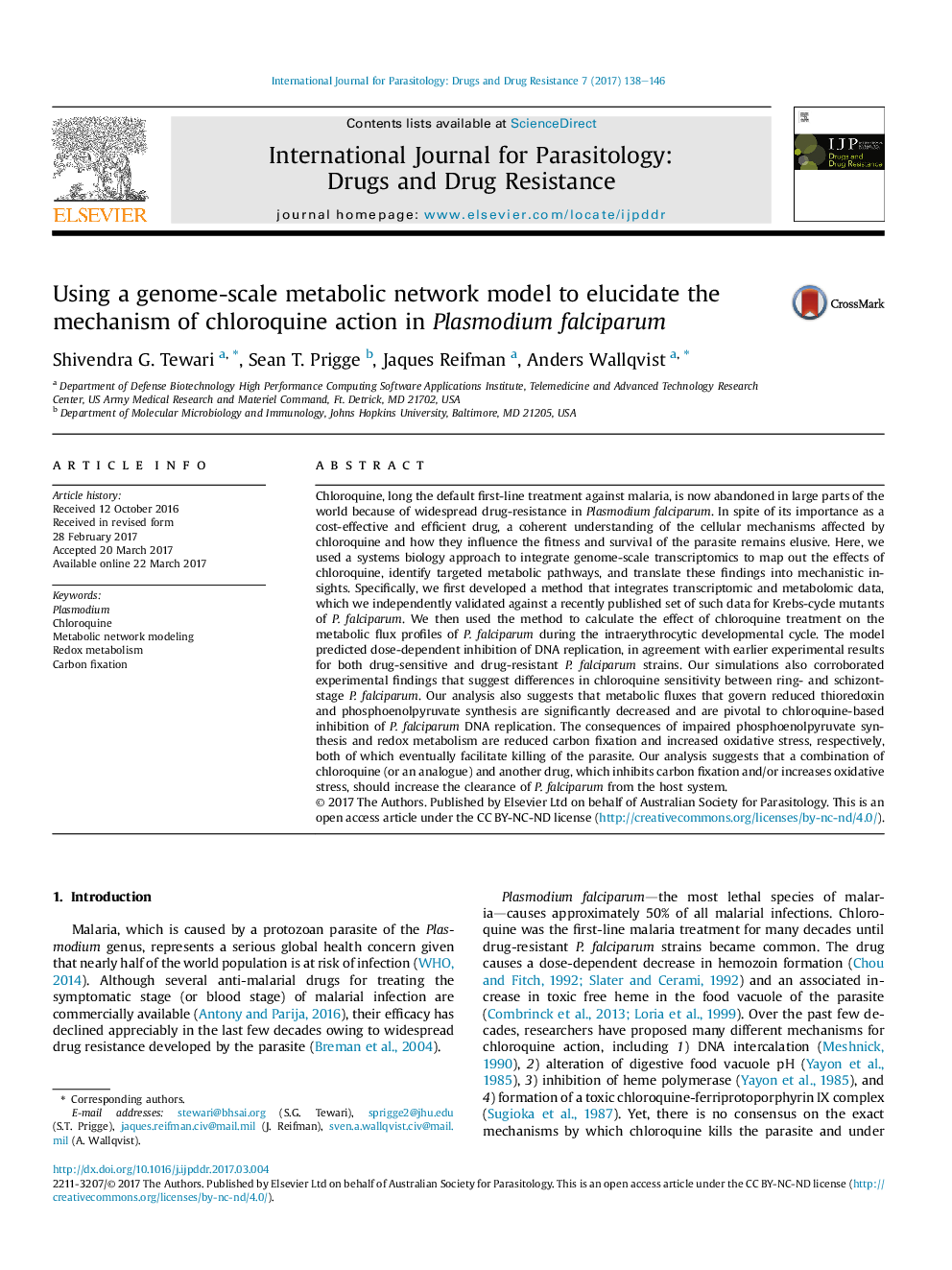| کد مقاله | کد نشریه | سال انتشار | مقاله انگلیسی | نسخه تمام متن |
|---|---|---|---|---|
| 5517855 | 1401035 | 2017 | 9 صفحه PDF | دانلود رایگان |
Chloroquine, long the default first-line treatment against malaria, is now abandoned in large parts of the world because of widespread drug-resistance in Plasmodium falciparum. In spite of its importance as a cost-effective and efficient drug, a coherent understanding of the cellular mechanisms affected by chloroquine and how they influence the fitness and survival of the parasite remains elusive. Here, we used a systems biology approach to integrate genome-scale transcriptomics to map out the effects of chloroquine, identify targeted metabolic pathways, and translate these findings into mechanistic insights. Specifically, we first developed a method that integrates transcriptomic and metabolomic data, which we independently validated against a recently published set of such data for Krebs-cycle mutants of P. falciparum. We then used the method to calculate the effect of chloroquine treatment on the metabolic flux profiles of P. falciparum during the intraerythrocytic developmental cycle. The model predicted dose-dependent inhibition of DNA replication, in agreement with earlier experimental results for both drug-sensitive and drug-resistant P. falciparum strains. Our simulations also corroborated experimental findings that suggest differences in chloroquine sensitivity between ring- and schizont-stage P. falciparum. Our analysis also suggests that metabolic fluxes that govern reduced thioredoxin and phosphoenolpyruvate synthesis are significantly decreased and are pivotal to chloroquine-based inhibition of P. falciparum DNA replication. The consequences of impaired phosphoenolpyruvate synthesis and redox metabolism are reduced carbon fixation and increased oxidative stress, respectively, both of which eventually facilitate killing of the parasite. Our analysis suggests that a combination of chloroquine (or an analogue) and another drug, which inhibits carbon fixation and/or increases oxidative stress, should increase the clearance of P. falciparum from the host system.
225
Journal: International Journal for Parasitology: Drugs and Drug Resistance - Volume 7, Issue 2, August 2017, Pages 138-146
